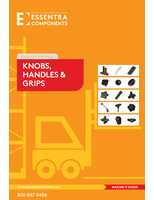Nanotechnology Standard facilitates data exchange.
Press Release Summary:
ASTM E2909, Guide for Investigation/Study/Assay Tab-Delimited Format for Nanotechnologies, will facilitate submission and exchange of nanomaterial descriptions and characterization data among individual researchers. It is hoped that ASTM E2909 will empower organizations to adopt standard methods for presenting data in nanotechnology publications, as well as provide researchers with guidelines for representing nanomaterials and characterizations to achieve cross-material comparison.
Original Press Release:
New ASTM Nanotechnology Standard Will Facilitate Description and Characterization Data Exchange
W. CONSHOHOCKEN, Pa., —A new ASTM International standard will facilitate the meaningful submission and exchange of nanomaterial descriptions and characterization data, along with other files, among individual nanotechnology researchers.
ASTM E2909, Guide for Investigation/Study/Assay Tab-Delimited Format for Nanotechnologies (ISA-TAB-Nano): Standard File Format for the Submission and Exchange of Data on Nanomaterials and Characterizations, was developed by Subcommittee E56.01 on Informatics and Technology, part of ASTM International Committee E56 on Nanotechnology.
“This standard is a simple way to share data related to nanotechnology,” says Nathan Baker, a national laboratory fellow and chair of E56.01. “No such standard existed before this, so it fills an important gap in the nanotechnology research area.”
Baker notes that there are several barriers to data sharing in the nanosciences. “One of these is the lack of standard formats for exchanging data — between scientists, to and from databases and as supplementary information for journal publications,” says Baker. “ASTM E2909 addresses the need for a standard format for data sharing.”
It is hoped that ASTM E2909 will empower organizations to adopt standard methods for presenting data in nanotechnology publications, as well as to provide researchers with guidelines for representing nanomaterials and characterizations to achieve cross-material comparison. The guide is presented as a file structure that contains four primary files — investigation, study, assay and material files.
Appendixes in the standard provide a detailed overview of the structure of each ISA-TAB-Nano file, along with example data. In addition, detailed ISA-TAB-Nano background is presented.
Research scientists, both producers of nanotechnology data and those who analyze it, will be the primary users of ASTM E2909. In addition, regulatory bodies will be able to use the standard when assessing the safety or performance of products.
Baker says the subcommittee welcomes all parties interested in future revisions to ASTM E2909. E56.01 would particularly like participation from nanoscience researchers, regulatory decision makers and data scientists.
To purchase ASTM standards, visit www.astm.org and search by the standard designation, or contact ASTM Customer Relations (phone: 877-909-ASTM; sales@astm.org). ASTM International welcomes participation in the development of its standards. For more information on becoming an ASTM member, visit www.astm.org/JOIN.
ASTM International is one of the largest international standards development and delivery systems in the world. ASTM International meets the World Trade Organization (WTO) principles for the development of international standards: coherence, consensus, development dimension, effectiveness, impartiality, openness, relevance and transparency. ASTM standards are accepted and used in research and development, product testing, quality systems and commercial transactions.
For more news in this sector, visit www.astm.org/sn-quality or follow us on Twitter @ASTMQuality.
ASTM Committee E56 Next Meeting: Nov. 11-12, 2013, November Committee Week, Jacksonville, Fla.
Technical Contact: Nathan Baker, Pacific Northwest National Laboratory, Richland, Wash., Phone: 509-375-3997; nathan.baker@pnl.gov
ASTM Staff Contact: Kathleen McClung, Phone: 610-832-9717; kmcclung@astm.org
ASTM PR Contact: Barbara Schindler, Phone: 610-832-9603; bschindl@astm.org




